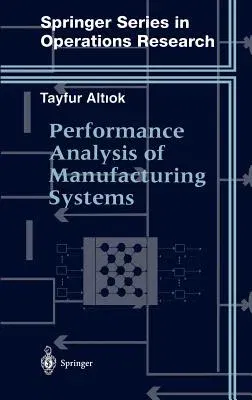Tayfur Altiok
(Author)Performance Analysis of Manufacturing Systems (1997)Hardcover - 1997, 13 December 1996

Qty
1
Turbo
Ships in 2 - 3 days
In Stock
Free Delivery
Cash on Delivery
15 Days
Free Returns
Secure Checkout

Part of Series
Springer Operations Research and Financial Engineering
Part of Series
Springer Series in Operations Research
Part of Series
Springer Series in Operations Research and Financial Enginee
Print Length
355 pages
Language
English
Publisher
Springer
Date Published
13 Dec 1996
ISBN-10
0387947736
ISBN-13
9780387947730
Description
Product Details
Author:
Book Edition:
1997
Book Format:
Hardcover
Country of Origin:
US
Date Published:
13 December 1996
Dimensions:
24.23 x
16.43 x
2.62 cm
ISBN-10:
0387947736
ISBN-13:
9780387947730
Language:
English
Location:
New York, NY
Pages:
355
Publisher:
Series:
Weight:
725.75 gm